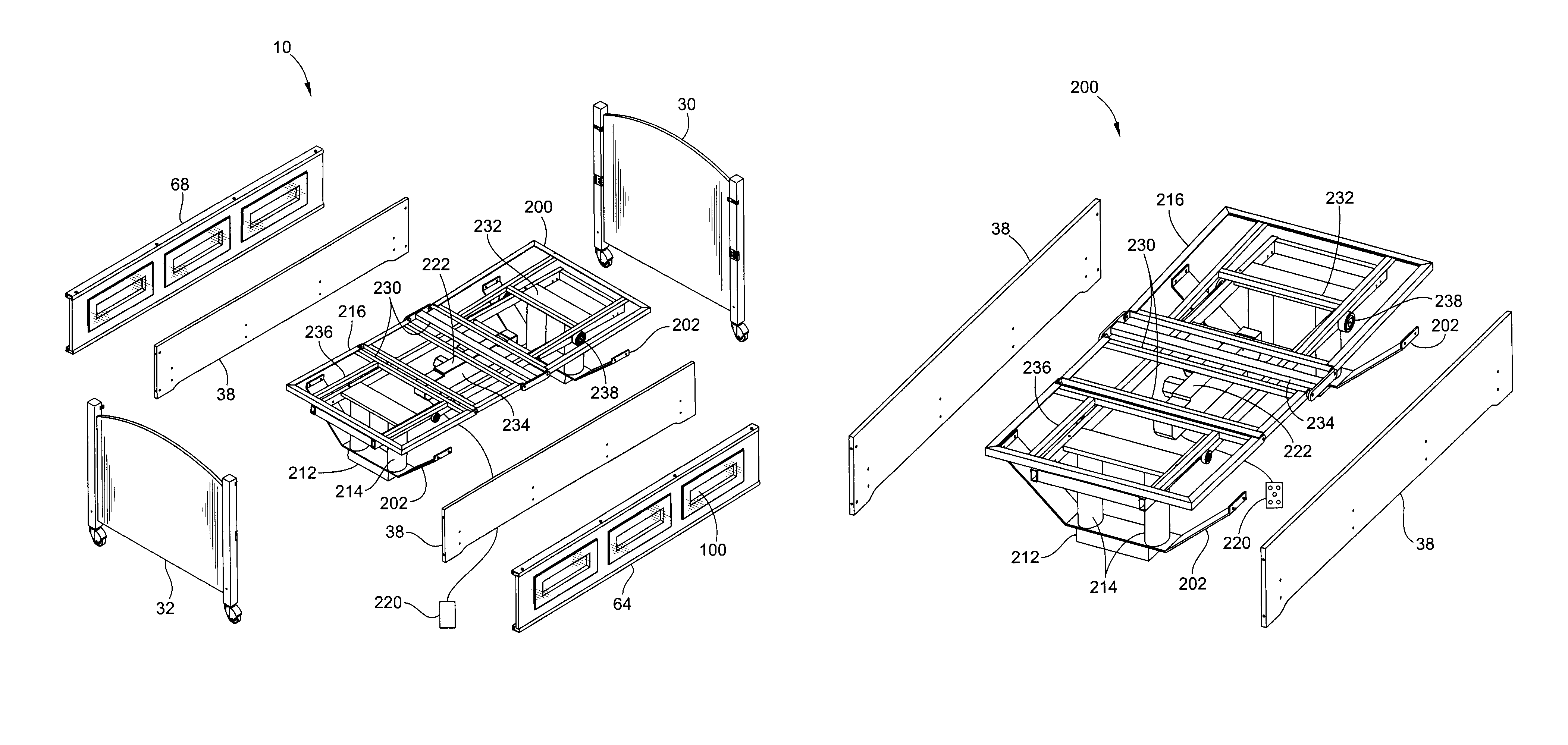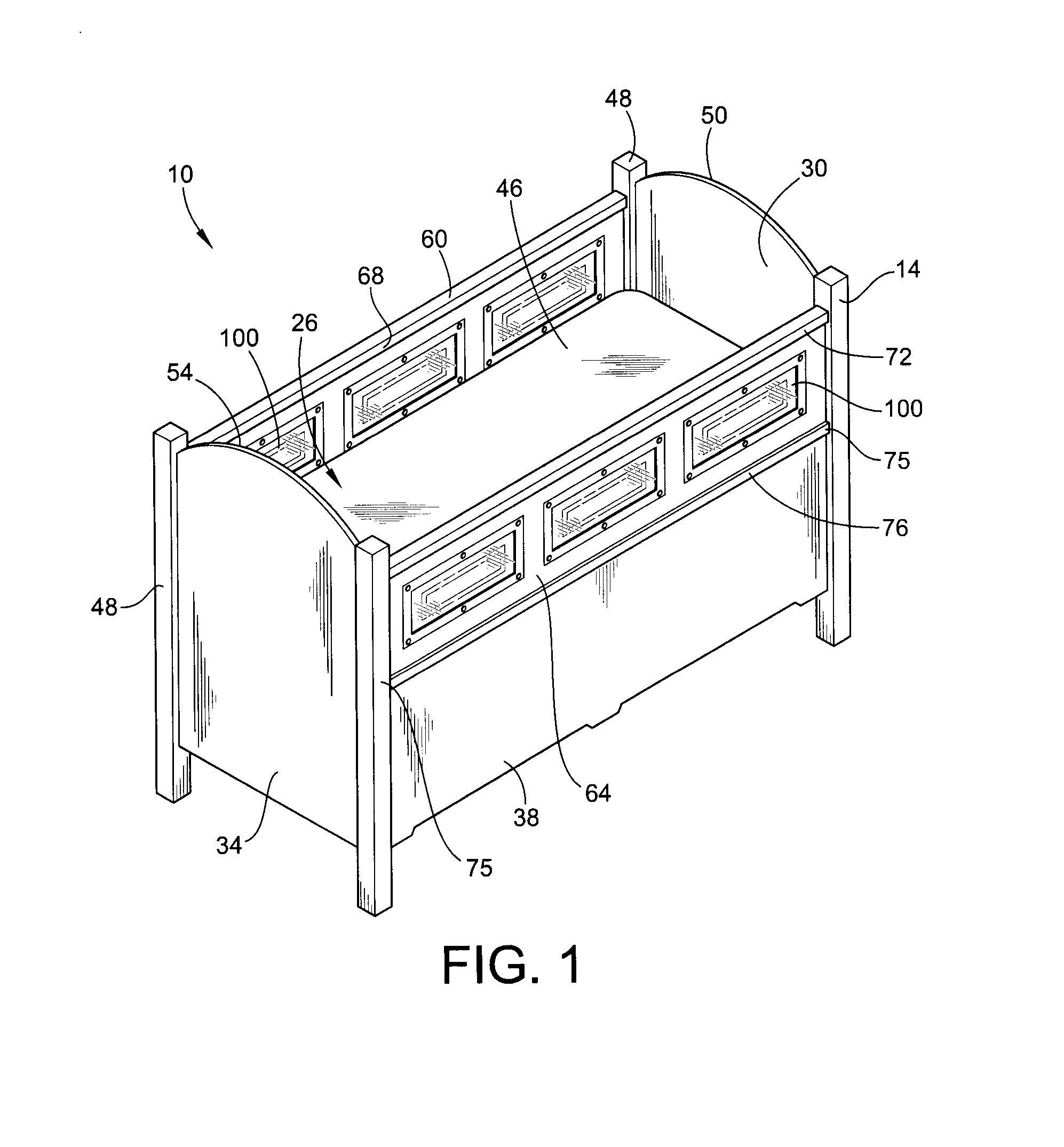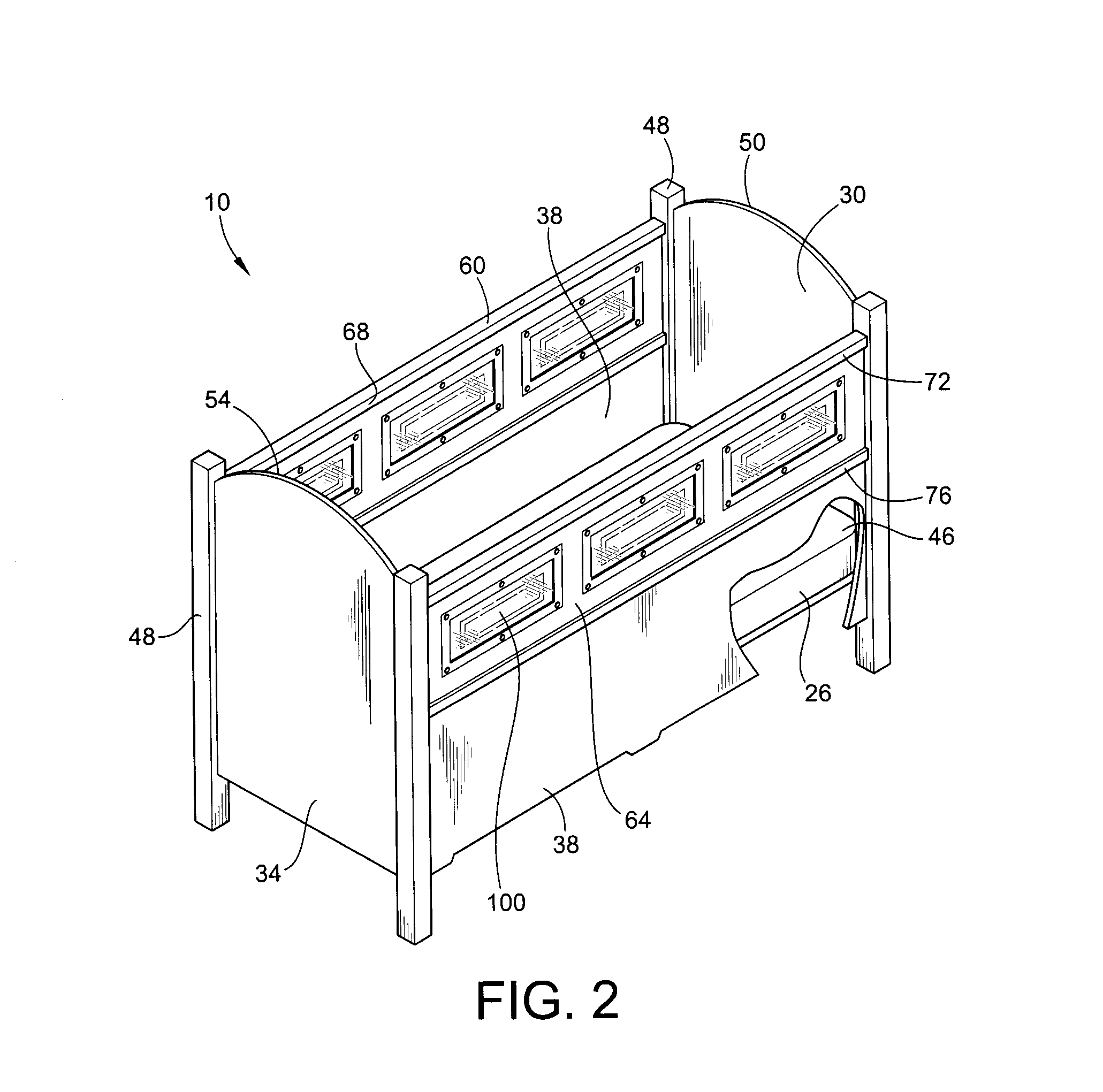Safety bed frame mounting system
a safety bed and frame technology, applied in the field of safety beds, can solve the problems of patients falling, entrapment and possibly death, and no prior art treatment of the problem of patients crawling out of the bed, so as to prevent or at least substantially minimize the incidence of “gap-related” injuries, facilitate the movement of the bed, and be easily moved
- Summary
- Abstract
- Description
- Claims
- Application Information
AI Technical Summary
Benefits of technology
Problems solved by technology
Method used
Image
Examples
Embodiment Construction
[0026]The following description relates to a safety bed design according to a specific embodiment. It will be readily apparent from the following discussion, however, that certain variations and modifications can easily be imagined within the inventive concepts as claimed herein. Furthermore, certain terms are used throughout this discussion such as “upper,”“lower,”“lateral” and the like which assist in providing a frame of reference with regard to the accompanying drawings. These terms, however, should not necessarily be construed as limiting of the present invention, except as otherwise stated herein.
[0027]Referring to FIG. 1, there is illustrated a safety bed 10, with the mattress 26 in the upper position in accordance with the preferred embodiment of present invention. The safety bed includes a wooden bed frame 14, the frame including a headboard 30, a footboard 34, and a pair of side boards 38 (only one of which is shown in FIG. 1), which interconnect the headboard 30 and the f...
PUM
 Login to View More
Login to View More Abstract
Description
Claims
Application Information
 Login to View More
Login to View More - R&D
- Intellectual Property
- Life Sciences
- Materials
- Tech Scout
- Unparalleled Data Quality
- Higher Quality Content
- 60% Fewer Hallucinations
Browse by: Latest US Patents, China's latest patents, Technical Efficacy Thesaurus, Application Domain, Technology Topic, Popular Technical Reports.
© 2025 PatSnap. All rights reserved.Legal|Privacy policy|Modern Slavery Act Transparency Statement|Sitemap|About US| Contact US: help@patsnap.com



